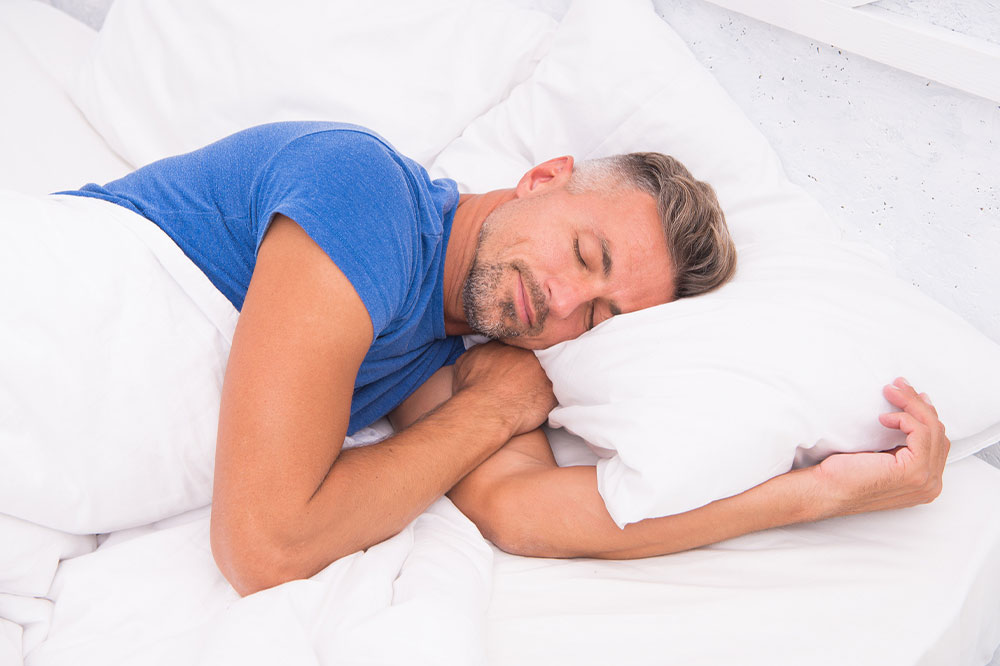
Things to Avoid for a Healthy Sleep Cycle
Did you know the average person sleeps less than seven hours every night? According to the Sleep Foundation, nearly 10% to 30% of adults globally have reported that they struggle with chronic insomnia. While several underlying health conditions can cause this, a significant recurring reason is an unhealthy sleep cycle. It is challenging to control exactly when we fall asleep, but we can make an effort to avoid things that prevent us from dozing off.
What affects our ability to fall asleep?
Before diving into the habits to avoid for quality rest, it is essential to understand the three factors that affect our ability to fall asleep:
Sleep pressure
Sleep pressure, or the desire to sleep at night, is directly linked to the duration you have been awake and active throughout the day. Your sleep pressure will increase the longer you stay awake during the day. A low sleep pressure will lower your ability to fall asleep at your regular bedtime.
Circadian rhythm
This is your body’s internal clock system. Several critical functions of your body, such as brain functions, metabolism, as well as feelings of wakefulness and sleepiness, are regulated by your circadian rhythm.
Activation level
Activation levels increase or decrease with the intensity of stress and emotions we feel at any particular moment. If your activation level is high during bedtime, it will camouflage the feeling of tiredness at the end of the day, preventing you from sleeping well.
Things to avoid for a healthy sleep cycle
The following are eight things you should avoid to regulate your circadian rhythm, sleep pressure, and activation levels and have a healthy sleep cycle:
Meals close to bedtime
Many people commit the folly of eating meals quite close to their bedtimes. It is generally advisable to keep a gap of three hours between eating a meal and going to bed. This allows the body to process the energy released post meals. If unreleased, this energy may cause your circadian rhythm to go haywire. Moreover, lying down immediately after eating a large meal may cause acid reflux. The resultant heartburn will cause major interference in your sleep cycle.
Working close to bedtime
This is one of the most difficult things to avoid for a healthy sleep cycle. Many jobs require us to be on-call for long hours of the day. As a result, people tend to work close to their bedtimes or past their sleep schedule. Work commitments that arise close to bedtime may be highly stressful or provoke strong emotions. This can hamper your activation levels, making it harder to fall asleep quickly.
Sleeping in uncomfortable spaces
It is difficult to fall asleep when surrounded by loud noises or bright lights or when the space is too enclosed that it becomes stifling. The same applies to rooms that are either too warm or too cold. You should avoid sleeping in such spaces that overstimulate your senses. The space where you wind down at the end of the day must be noiseless, with a comfortable temperature and low lighting.
Long naps in the middle of the day
Power naps in the middle of the day are highly recommended to regulate your productivity and energy levels and improve overall health. However, long naps during the day will lower your sleep pressure, making it difficult to doze off at night. The longer the daytime naps, the harder it is to achieve a healthy sleep cycle. So, avoid naps of more than 20 minutes to stabilize your night-time sleep schedule.
Caffeinated beverages before sleeping
Tea, coffee, and soda are some of the most commonly recommended beverages to avoid for a healthy sleep cycle. These beverages have high percentages of caffeine, a stimulant that keeps you up for hours. While herbal and green tea may help alleviate stress, these also have some caffeine content. So, if you are sensitive to the effects of caffeine, it is best to avoid herbal and green tea as well. Experts recommend individuals to stop having caffeinated beverages at least four to six hours before sleeping.
Gadgets in the bedroom
Did you know that the blue light emitted by screens of mobile devices, PCs, and televisions lowers melatonin production in your body? Melatonin is a hormone released by the brain in response to darkness. It regulates your circadian rhythm, thus helping you to fall asleep easier. Naturally then, lower levels of melatonin can disrupt your sleep cycle. The presence of gaming systems, computers, TV, phones, and other gadgets in your bedroom can also make it easier for you to reach out for a plethora of stimulation, which will not allow you to sleep more quickly.
Vigorous exercising before bedtime
Daily exercise for at least 30 minutes is good for health. It also ensures you sleep well at night. However, a vigorous exercise routine right before bedtime is not a good idea. Your heart rate and blood pressure will rise, keeping your body active when it is time to wind down. Moreover, your body temperature will increase right after exercising, preventing you from falling asleep quickly.
Changing sleep schedule frequently
A steady sleep schedule is the best way to get quality sleep. So, make sure to go to bed at around the same time every day and wake up at the same time in the morning. On the other hand, an erratic sleep schedule must be avoided. Going to bed and getting up at different times every day will disrupt your body’s sense of tiredness and sleepiness. This will throw off your body’s circadian rhythm, making it difficult to fall asleep.
In a nutshell, the things you need to avoid for a healthy sleep cycle are those that cause problems in your circadian rhythms, activation levels, and sleep pressure. Avoiding these things will help you sleep better and live a healthy life.


